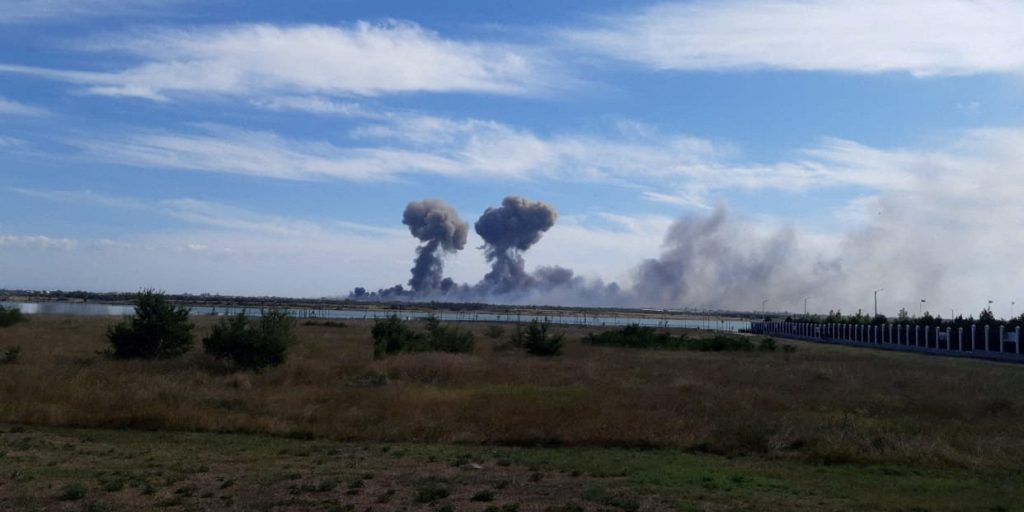- Russian military sites in Crimea have been hit by a series of explosions over the past two weeks.
- Ukraine hasn't officially taken credit, but officials have suggested it was involved in the blasts.
- Russia hasn't formally blamed Ukraine, but it's being more cautious with its forces around Crimea.
A series of incidents over the past two weeks have rocked military outposts on the Russian-occupied Crimean Peninsula.
On August 9, there were several large explosions at the Saky air base in western Crimea, about 130 miles south of the war's frontline.
The airbase primarily hosted aviation forces of the Russian Black Sea Fleet, which is headquartered in nearby Sevastopol, and the explosions destroyed or severely damaged at least eight Russian aircraft.
At the time, Russia claimed the explosions were caused by an accident. However, evidence suggests that they were the result of a Ukrainian attack.
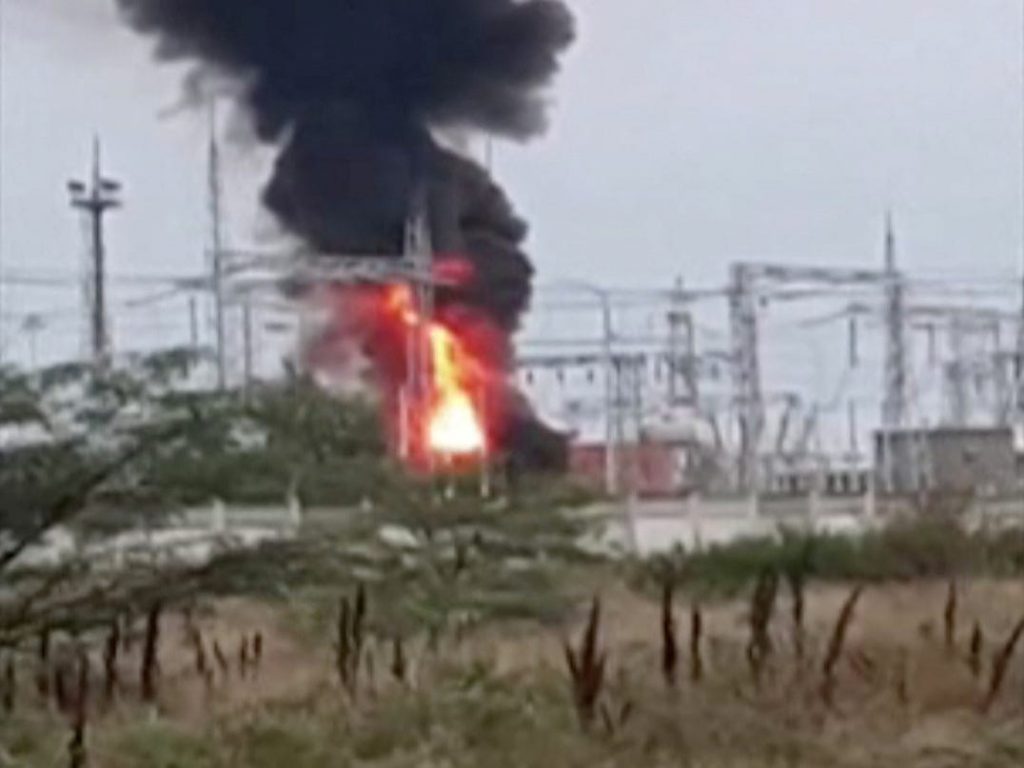
On August 16, a Russian ammunition dump exploded in the village of Maiskoye near the city of Dzhankoi in northern Crimea. According to the British Defense Ministry, a nearby railway and electricity sub-station were also damaged.
Dzhankoi is an important road and rail junction connecting Crimea to the rest of Ukraine. One of the peninsula's major airfields is also located close by.
The same day, smoke was reportedly seen rising from Gvardeyskoye air base in central Crimea, another important military outpost. However, satellite imagery examined by defense outlet The War Zone indicated that there was no visible damage to the base or its aircraft or other signs of an attack.
Assuming a defensive posture
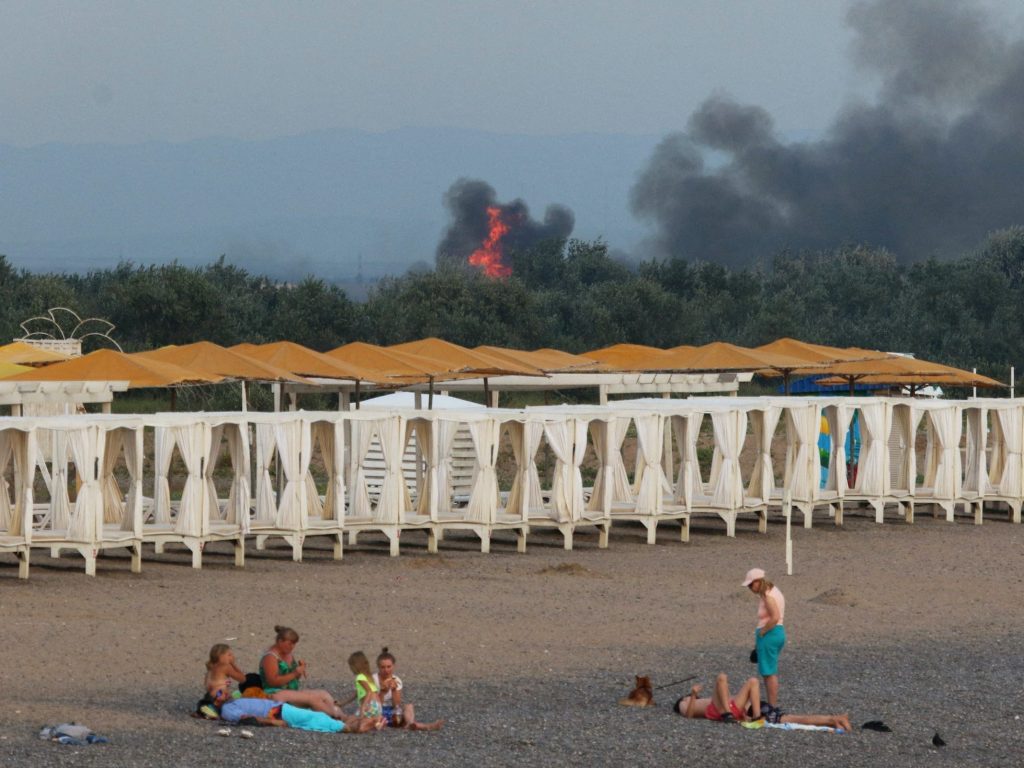
The incidents have led Russia to move at least 24 jets and 14 helicopters back to Russia or to bases deeper inside Crimea to protect them, according to the Ukrainian intelligence services.
Moving those assets farther from the frontlines could make it harder for Russia to use them in support of its operations in Ukraine.
Although the eight aircraft lost at Saky are a small number of the total Russia has committed to the conflict, their loss further degrades the capabilities of the Black Sea Fleet, which lost its flagship, Moskva, in April.
The fleet's surface ships continue "to pursue an extremely defensive posture, with patrols generally limited to waters within sight of the Crimean coast," the British Defense Ministry said on August 16.
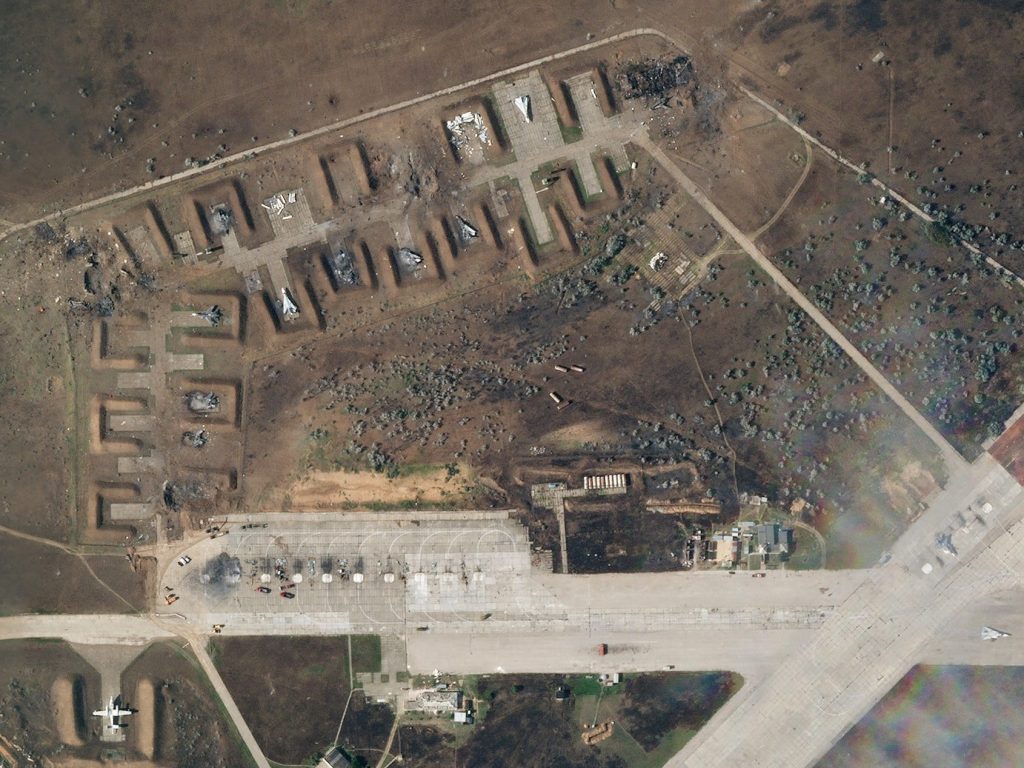
Even though the fleet continues to conduct long-range missile attacks against Ukrainian targets, its "limited effectiveness undermines Russia's overall invasion strategy," partly because the "amphibious threat to Odessa has now been largely neutralized," allowing Ukraine to move its troops elsewhere, the ministry added.
Asked about the explosions during a briefing on August 19, a US defense official said "we are seeing this overarching picture of Russian forces being much more vulnerable than they thought they were, and we are seeing movements of Russian forces as a result to try to protect their capabilities."
The recent incidents have also affected the morale and sense of security of Russians in Crimea. Following the explosions at Saky air base, thousands of civilians, many of them vacationers, appeared to leave the peninsula.
This "proves that the absolute majority of citizens of the terrorist state already understand or at least feel that Crimea is not a place for them," Ukrainian President Volodymyr Zelenskyy said on August 16, referring to Russian settlers who moved to Crimea after Moscow annexed it in 2014.
Crimea's importance
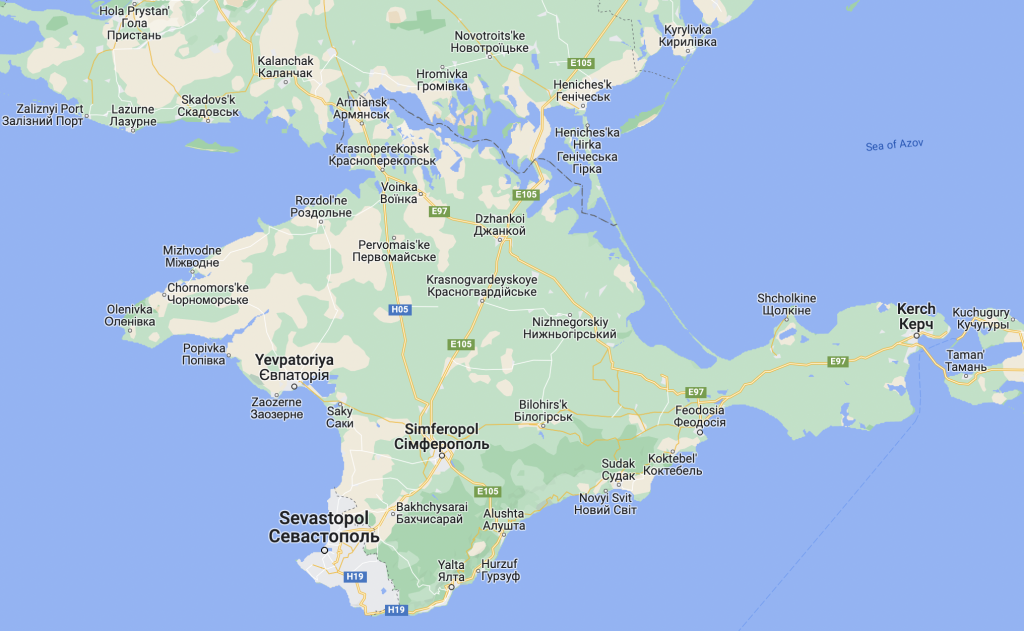
Crimea has been an important support area for Russia's current attack on Ukraine.
The southern arm of the invasion, launched on February 24, advanced into mainland Ukraine from Crimea, capturing Kherson and establishing the southern front. Russia has also used Crimea's roads and railways to reinforce and resupply its forces in southern and southeastern Ukraine.
Crimea's military and political significance for Moscow pre-dates the current war.
The peninsula is home to Sevastopol, which has the most developed naval base in the Black Sea region. It has been a major base for Russia's Black Sea Fleet since the fleet and the city were founded in 1783.
In 1957, administration of the peninsula was transferred from Russia to Ukraine — both parts of the Soviet Union at the time. After the Soviet Union's dissolution, Crimea remained with Ukraine, which leased the Sevastopol base to Moscow in 1997.
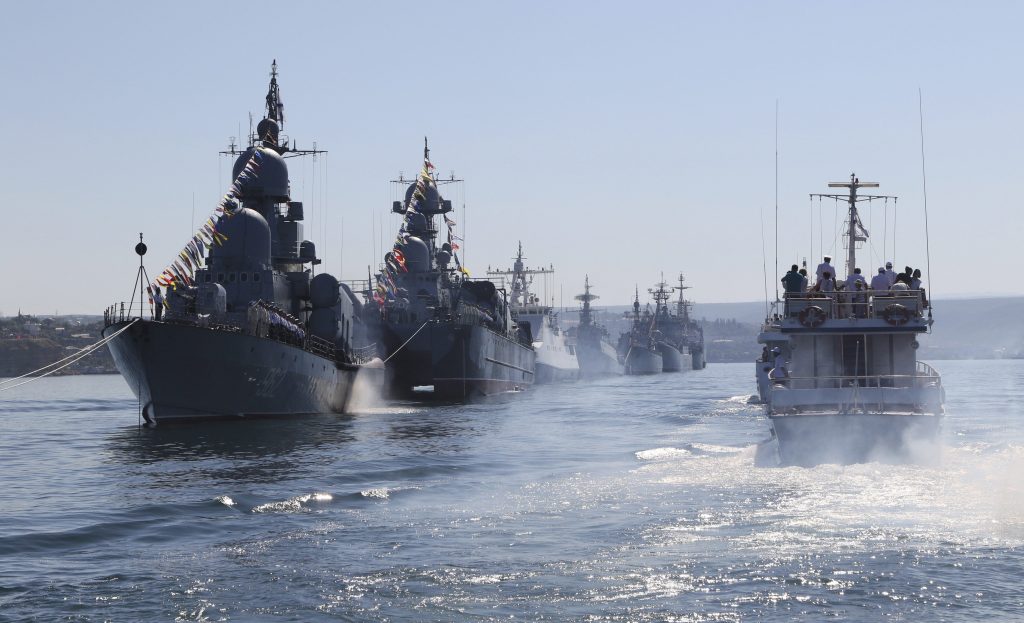
In 2010, Ukraine and Russia agreed to extend that lease until at least 2042, but Russian politicians repeatedly voiced dissatisfaction about Ukraine's continued control of the peninsula.
Following its annexation in 2014, President Vladimir Putin proclaimed that, "In our hearts, we know Crimea has always been an inalienable part of Russia."
Ensuring continuous military access to Sevastopol was a major reason for the annexation. It is one of Russia's few warm-water ports and allows the Black Sea Fleet to better project power throughout the region. Control of Crimea also allows Russia to restrict access to the Sea of Azov, which it and Ukraine both border.
The peninsula is home to other ports and airfields, including those in Dzhankoi and Gvardeyskoye, that Moscow has been developing and modernizing since 2014.
Ukrainian officials have expressed determination to retake the peninsula, and the recent incidents could signal Kyiv's increasing ability and desire to hit Russia in what Moscow believed was a safe haven.

Additionally, Washington appears increasingly supportive of Ukrainian attacks on Russians in Crimea.
In early July, a senior US defense official told reporters that Russian forces in Crimea "are absolutely fair targets." This month, a senior Biden administration official told Politico that there were no restrictions on Kyiv striking Russians on occupied Ukrainian territory, and, the official added, "Crimea is Ukraine."
On August 10, Zelenskyy said Russia's "war against Ukraine, against the whole of free Europe, began with Crimea and has to end with Crimea, with its liberation."
"Today it is impossible to say when this will happen, but we are constantly adding the necessary components to the formula for the liberation of Crimea," Zelenskyy said. "The Black Sea region cannot be safe as long as Crimea is occupied."
Constantine Atlamazoglou works on transatlantic and European security. He holds a master's degree in security studies and European affairs from the Fletcher School of Law and Diplomacy. You can contact him on LinkedIn.
